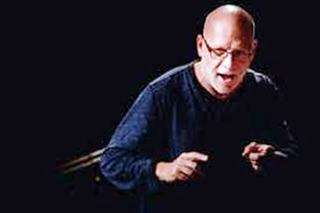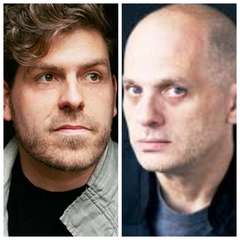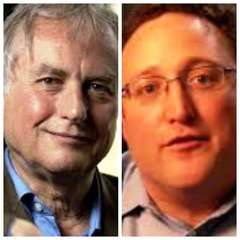|
Back
Resonances of Rage New York
Park Avenue Armory
09/19/2018 - & September 20, 2018
David Lang: Prelude – last spring; Gabriel Jackson: Our flags are wafting in hope and glory – Rigwreck (NY Premieres)
Kile Smith: Conversation in the Mountain from Where Flames a Word (New York Premiere)
Louis Andriessen: Alnania Weeping (New York Premiere)
Ted Hearne: Animals (New York Premiere)
Suzanne Giraud: Johannisbaum (New York Premiere)
David Shapiro: Sumptuous Planet (New York Premiere)
Sebastian Currier: Sanctus from Night Mass
Benjamin C.S. Boyle:Empire of Crystal (New York Premiere)
Alexander Hersh, Arlen Hlusko, Thomas Mesa (Cellos)
The Crossing, Donald Nally (Conductor, Musical Organizer)

D. Nally
“After being out on the battlefield all day, I like to relax by listening to music of Mozart.”
Vietnam General Mark Abrams (1968)
“A woman gave three frightful screeches, and then cried, 'Oh! death, death, death!'”
Danel Defoe, Journal of the Plague Year (1722)
Conductor Donald Nally is not one to simply give a choral concert. The leader of the great Philadelphia-based choral group, The Crossing, used two rooms of the Park Avenue Armory to present a concert which was concerned with “rage.” His Nally’s introduction, quoting from Virgil and Ferlinghetti, asked “What story do we tell here, and how does it relate in this moment in time? Rage continued to speak...(and) we might better understand it...even just a little...”
Whatever his composers did in mostly New York premieres, Mr. Nally certainly had the writers who surveyed a world–sometimes ours sometimes a heavenly world, sometimes (in E.E. Cummings words), “the universe next door.” The results, while musically startlingly good, might not have excised the rage which the comfortable and classy audience felt.
(And reading the list of Park Avenue Armory sponsors, I realized that most of these philanthropists make their money, directly or indirectly, in the military business which creates this “rage”. Never mind.)

T. Hearne/D. Lang
The first half in the Officers Room, with its portraits of Civil War heroes, started and finished with two of the most familiar names. David Lang and Ted Hearne. Mr. Lang’s “prelude” for three cellists was a leitmotiv for the whole concert, the cellos offering their notes between choral works. The final work by Ted Hearne was a tour de force (or tour de frenzy) for The Crossing, the entire 40-odd members bursting into “animal sounds” together.
Animals was echoing the words of President Thing (I won’t utter his name), “They are not men, they are animals.” Thus the sounds of an animal chorus, all voices parading their creature-sounds up and down the octaves. Of course real animals do no such thing. They purr and mew and bark and roar singly for protection, for warning, for defense.
Nor did the effect give us rage. It was Mr. Hearne using his verbal genius.
Other works melded into each other with dissonances, with intricate counterpoing, and usually with little notice of the words. Louis Andriessen was lovely but all too short in Ahania Weeping, from William Blake’s eclectic mythology. Here, the cellos pushed forth their own music, the ending a kind of wail. Gabriel Jackson’s Our Flags are Wafting was the first of two pieces he had, both of them dissonant, ironic, written with expertise.
Mr. Jackson contributed the longest work on the program, Rigwreck, based on the BP oil spill in the Gulf of Mexico. There was no doubt that the long poem by Pierre Joris had at its antecedent Mallarmé’s Un coup de dés jamais n’abolira le hasard, with its own shipwreck references, with its eccentric capitalizations and typography. Mr. Joris eliminated symbolism, somehow put together the world, love and disaster. It was an effective poem, yet one could hardly set it to effective music.
For the second half, we moved from the “homage to war” room to the Veterans Room in the Park Avenue Armory. And I for one was so stunned by this, the most gorgeous room in New York, that it was difficult to keep track of the words and the music. Whatever the history of the Veterans Room, today it looks as if an Eighth Century Constantinople sculptor/painter had been hallucinating for thirteen centuries on LSD, had woken up with a thousand slave-artisans ready to recreate his 21st Century Byzantine mirages.
Some of the sounds were worthy of the room. A stunningly gorgeous and simple Sanctus by Sebastian Currier followed (ironically or not) words by the world’s favorite atheist, Richard Dawkins.

R. Dawkins/D. Shapiro
And if this is one case where words overcome music, this was it. I was frankly overwhelmed reading words I had already known put into verse form. It was poetry, it had the radiance of that other secular icon, William Shakepeare. No notes from David Shapiro could further enlighten Professor Dawkins’ Elizabethan “After sleeping through a hundred million centuries we have finally opened our eyes on a sumptuous planet, sparkling with colour, bountiful with life.”
Mr. Shapiro cheated to make his musical point, for Professor Dawkins never appended the last doleful, agonizing line– “Within decades we must close our eyes again.” That last line comes from an entirely different article. Shame!
For another writer whose words are poetry, Italo Calvino, Benjamin C.S.Boyle set Empire of Crystal with crystaline notes, each word emphasised with each note.
Again, the bookends of the second half were played by the cellos. As we walked in to what was probably part of Mr. Lang’s Prelude, Suzanne Giraud’s cello/choral work, Johannisbaum was being intoned with repetetive runs on the cellos, with music that was far apart from the French surrealistic poem, yet had its own mesmeric offering.
Finally we heard again from David Lang, his own words from a poem set by Edvard Grieg about an old man wondering if he would see another spring. The cellos and voices (originally women’s voices alone) for last spring was apart from all the other music on the program. The poetry was simple, repetitive, the music equally so. It was sad but not desolate, it balanced on the cusp of melancholia, yet it had–as Richard Dawkins’s words had–a feeling that, whatever the outcome, the universe is all too beautiful for words.
Then again, this amassing of architectural/verbal/musical imagery, if hardly a paean to pain and rage, had such a mixture of effects, that it could have divided our affections. Instead, it called to mind a paraphrase of the simple E.E. Cummings (again) reply to a journalist visiting his painting exhibition.
Interviewer: “Tell me, don’t the architecture, the words and the notes interfere with each other?”
Cummings: “Quite the contrary; they love each other dearly.”
Yes, they did. Sanctus and Amen.
Harry Rolnick
|